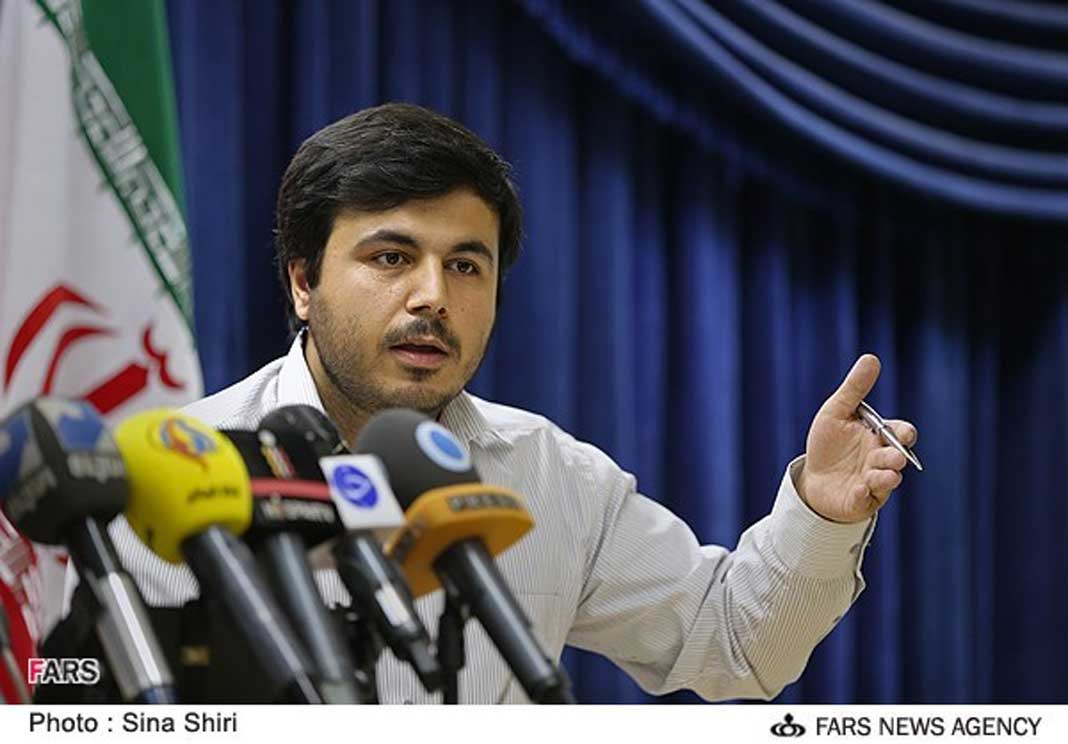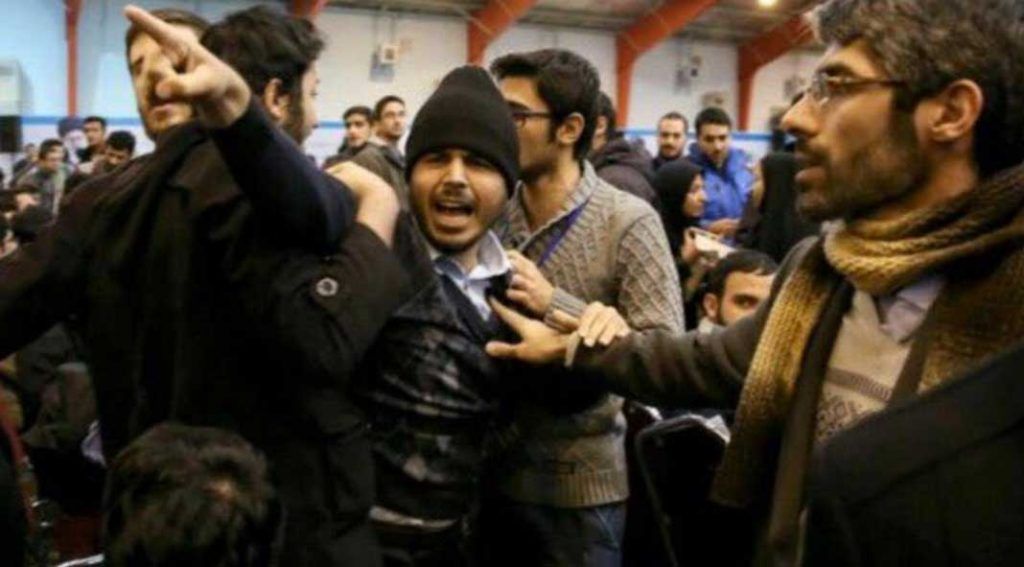July 17, 2017
By Potkin Azarmehr
The way some of the leading Western media reported the deportation of a member of the paramilitary wing of the Revolutionary Guards from US should enter journalism’s text books as a prime example of what lazy journalism and fake news is.

“An Iranian cancer researcher who travelled to the US with his family on a valid J1 visa was sent back to Iran two weeks after Donald Trump’s revised travel ban came into force.”
John Kerry, former Secretary of State under President Obama quoted the Boston Globe headline adding “tragic” to his tweet.
The Iranian “cancer researcher” is Mohsen Dehnavi. Somehow established news media like the Guardian, The Independent, Huffington Post, the Boston Globe had not carried out a simple Google search to see who Mohsen Dehnavi is and how he is connected with Iran’s Revolutionary Guards.
Aparat, Iran’s slow and cumbersome equivalent of Youtube hosts a promotional video by Sharif University, which introduces Mohsen Dehnavi with PHD in Chemical Engineering.
Dehnavi also appears as the deputy director of the Shahid Rezaee Research Centre at Sharif University, which is officially described as an Iranian defence research institution.The collaboration between the Shahid Rezaee Research Centre and the Revolutionary Guard’s military industry is available in Iran’s open source media.
In 2007, Iran’s official Fars news reported Mohsen Dehnavi as the head of the Student Basij Organisation – paramilitary wing of the Revolutionary Guards – at Sharif University.
The Basij, as the para-military wing of the Revolutionary Guards, has a student organisation which has been instrumental in the crackdown against Iran’s secular student movement. Members of the Basij are favoured over others through a discriminatory quota system, which excludes many other students with superior academic qualifications. The Student Basij Organisation was also the driving force behind the attack on the British Embassy in December 2011.
Dehnavi was also the head of the student supporters of Iran’s former nuclear negotiator, Saeed Jalili, during the 2013 presidential campaign.
Dehnavi was not denied entry to US because of his ties with the Iranian militia and hardliners. There were discrepancies in his supporting documents that were presented at Logan airport, in Boston. Dehnavi’s brother in Iran was also quoted in the Iranian media as having said “there were some inconsistencies in his supporting documents which we hope can be rectified and he can soon return to US.”
This begs the following questions. How did Dehnavi acquire a J1 visa? Did the US embassy in Ankara do a proper background check on Dehnavi and issue him with a J1 visa? If they did, what was the real intention of allowing Dehnavi on US soil? What documents were presented to Harvard University to secure his position? Will Harvard University review its admittance programme? Are there other “Denavi”s currently on US soil? How many other Iranian nationals with connections to the Iranian military and Revolutionary Guards have been admitted to US in the past? And perhaps the most interesting of all, why does the former US Secretary of State, John Kerry, express his regret at Dehnavi being denied entry to US?



